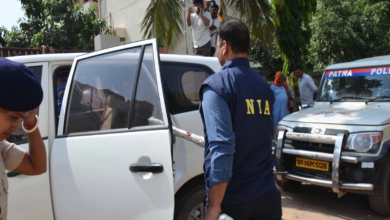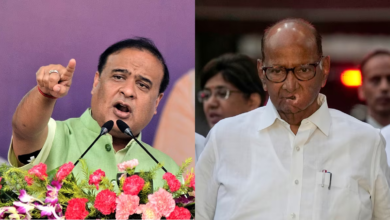The Supreme Court adjourns the hearing on the Chhattisgarh government’s petition challenging the PMLA.

Monday, the Supreme Court postponed the hearing on the Chhattisgarh government’s petition challenging the constitutionality of the Prevention of Money Laundering Act.
After the state disseminated a letter requesting adjournment, a bench composed of Justices Sanjiv Khanna and MM Sundresh adjourned the case until August.
In its petition, the Chhattisgarh government alleged that the normal functioning of non-BJP state administrations is being “intimidated,” “harassed,” and “disturbed” by central investigating agencies.
The Congress government led by Bhupesh Baghel filed the original petition challenging the law under Article 131 of the Constitution, which allows a state to directly approach the Supreme Court in disputes with the central government or other states.
Chhattisgarh is the first state to challenge the provisions of the money laundering act. Prior to last year, private individuals and parties had challenged the law on a variety of grounds, but a three-judge bench of the highest court upheld its constitutionality.
According to the lawsuit, the state government has received multiple complaints on behalf of its officials and residents alleging that the Enforcement Directorate is “torturing, abusing, and manhandling” them under the guise of conducting an investigation.
Chhattisgarh is compelled to go to court as a result of this “blatant and excessive misuse” of authority, it was stated.
“It is essential to note that this is not the first time the ED (Enforcement Directorate) has employed an unlawful mode of operation. On numerous occasions, this strategy has been employed in relation to various states that hold a political stance adverse to that of the federal government.
“Such conduct constitutes a grave misappropriation of power and an arbitrary use of authority, which violates the constitutional mandate. It states that investigative agencies are expected to be completely independent and uninfluenced.
Senior advocate Mukul Rohatgi and advocate Sumeet Sodhi, representing the Chhattisgarh government, told a bench of Chief Justice DY Chandrachud and Justice PS Narasimha that the issue is of constitutional significance and requires an urgent hearing.
The lawsuit, which was filed by Sodhi, stated that the “present case is a perfect illustration of how the central investigation agencies are being abused by those in power to intimidate, harass, and disrupt the normal functioning of an opposition government in the state of Chhattisgarh.”
It stated that Chhattisgarh is seeking the court’s intervention under its original jurisdiction conferred by Article 131 of the Constitution due to a dispute between the state and the defendants — Union of India, the state of Karnataka, and the Directorate of Enforcement — involving questions of law and facts that affect the state’s legal and constitutional rights.
The Chhattisgarh government gave the specifics of a case that prompted its petition to the apex court. An FIR was filed against Suryakant Tiwari at the Kadugodi police station in Bengaluru for offences punishable under various sections of the Indian Penal Code, including assault or criminal force to deter a public servant from performing his duty and destruction of evidence.
“The Income Tax Department is the complainant in the FIR, and the allegations pertain to alleged illegal collection on coal levy as well as attempts to influence public servants through corrupt and illegal means in the state of Chhattisgarh,” stated the lawsuit.
On the premise of the underlying offence, the Enforcement Directorate reportedly filed an Enforcement Case Information Report (ECIR) on September 29, 2022 and commenced its investigation.
“The investigation has resulted in indiscriminate searches and raids at various state government departments and offices, as well as the arrests of state officials,” stated the Chhattisgarh government.
In reference to the provisions of the Prevention of Money Laundering Act, it was stated that a criminal investigation must adhere to the principles of openness, transparency, and established legal procedures.
It stated that the provisions of the Prevention of Money Laundering Act have been modified by the Finance Acts of 2015, 2016, 2018, and 2019. As illegitimate uses of legislative authority in violation of Article 110(1) of the United States Constitution, these amendments enacted through the finance act are susceptible to being overturned.



